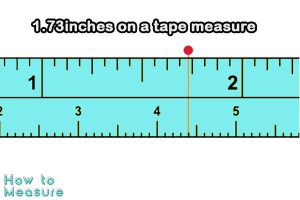Kilograms to Pounds Converter

In our daily lives, we often come across the need to convert units of measurement. One common conversion that many people encounter is converting kilograms (kg) to pounds (lbs). Whether planning a trip abroad, calculating body weight, or following a recipe from a foreign country, knowing how to convert kg to lbs can be highly useful. This article will guide you through converting kilograms to pounds, providing a clear and concise understanding of this conversion.
What is a kilogram (kg)?
The kilogram (kg) is a unit of measurement for mass in the International System of Units (SI). It is the base unit of mass and is used to measure the amount of matter in an object. The kilogram is the mass of the International Prototype of the Kilogram (IPK). This platinum-iridium cylinder is stored at the International Bureau of Weights and Measures (BIPM) in France.
For many years, the kilogram was defined based on the mass of the IPK, which served as the primary standard. However, this physical artifact-based definition posed challenges due to potential variations in the mass of the IPK over time. To overcome this issue, a new definition of kilogram was established in 2019.
As of May 20, 2019, the kilogram is defined as the Planck constant (h), a fundamental constant of nature in quantum physics. The Planck constant relates the energy of a photon to its frequency. The new definition links the kilogram to the Planck constant using the Kibble balance, also known as a watt balance, which measures the electrical power necessary to balance a mass.
Defining the kilogram as a fundamental constant rather than a physical object provides a more precise and reliable standard for mass measurements. This redefinition ensures the stability and universality of the kilogram, allowing for accurate measurements across different locations and periods.
The kilogram is widely used in various fields, including science, industry, and everyday life. It is employed in physics, chemistry, engineering, and commerce disciplines. From weighing objects to measuring cooking ingredients, the kilogram is crucial for quantifying mass.
In the metric system based on powers of ten, the kilogram is part of a hierarchy of units. It is one thousand grams or one million milligrams. Conversely, in the customary Imperial system, one kilogram equals 0.001 metric tons or approximately 2.205 pounds.
In summary, the kilogram is the fundamental unit of mass in the SI system. Its definition has evolved to ensure accuracy and precision. With the current definition tied to the Planck constant, the kilogram provides a stable and universal reference point for mass measurements in various scientific, industrial, and everyday contexts.
What is a pound (lbs)?
The pound (lb) is a unit of measurement for mass commonly used in the United States and a few other countries. It is also known as the avoirdupois pound. The pound is primarily used to measure the weight of objects and is part of the Imperial system of units.
The pound is defined as exactly 0.45359237 kilograms in the International System of Units (SI). It is important to note that the pound is distinct from the pound-force (lbf), which measures force, not mass. However, in everyday usage, “pound” and “pound-force” are often used interchangeably, leading to confusion.
The origin of the pound can be traced back to ancient Roman times. It was originally based on the weight of 12 Roman ounces, with each ounce equivalent to 1/12th of a Roman pound. Over time, various definitions and standards for the pound emerged in different regions.
In 1959, an international agreement known as the International Yard and Pound Agreement was signed between the United States, the United Kingdom, Canada, Australia, New Zealand, and South Africa. This agreement established a common standard for the pound and defined it as exactly 0.45359237 kilograms.
The pound is widely used daily in the United States, particularly for measuring body weight, groceries, and other common objects. It is also used in certain industries, such as agriculture, where the weight of produce or livestock is often measured in pounds.
It is worth noting that the United Kingdom and other countries that were part of the British Empire traditionally used a different pound known as the imperial pound. The imperial pound is slightly larger than the avoirdupois pound used in the United States, with 1 imperial pound equal to approximately 0.45359237 kilograms. However, casual conversations often overlook the distinction between the two pounds.
In summary, the pound is a unit of mass commonly used in the United States and a few other countries. It is defined as exactly 0.45359237 kilograms in the SI system. While the pound is primarily used to measure weight in everyday life, it is important to differentiate it from the pound-force, which measures force. The pound has a historical background and is deeply ingrained in the culture and measurement practices of the United States.
Kilograms to Pounds Conversion Formula
To convert kilograms (kg) to pounds (lbs), you can use the following conversion formula:
Pounds = Kilograms × 2.20462
This formula accounts for the conversion factor between kilograms and pounds. The conversion factor of 2.20462 represents the number of pounds in one kilogram.
Here’s an example to illustrate the conversion:
Let’s say you have a mass of 5 kilograms that you want to convert to pounds. Using the conversion formula:
Pounds = 5 kg × 2.20462 = 11.0231 lbs
So, 5 kilograms is approximately equal to 11.0231 pounds.
It’s important to note that the conversion factor used in the formula is an approximation, as the exact conversion factor is a lengthy decimal. However, 2.20462 provides a close enough approximation for everyday conversions between kilograms and pounds for most practical purposes.
Additionally, suppose you require a more precise conversion or work in a scientific or technical field. In that case, you may want to use a more accurate conversion factor with more decimal places, such as 2.20462262185, which provides a more exact result.
Converting kg to lbs: Step-by-step guide
here’s an explanation of each step in the process of converting kilograms (kg) to pounds (lbs):
Step 1: Identify the value in kilograms (kg) that you want to convert.
To begin, determine the value of the weight or mass in kilograms that you wish to convert to pounds. This could be a measurement you have obtained from a scale, a scientific calculation, or any other source.
For example, let’s say you have a mass of 10 kilograms that you want to convert to pounds.
Step 2: Use the conversion factor of 2.20462.
The conversion factor is the value that represents the relationship between kilograms and pounds. In this case, the conversion factor between kilograms and pounds is approximately 2.20462.
This means that for every kilogram, there are approximately 2.20462 pounds. This factor allows us to convert between the two units of mass.
Step 3: Multiply the value in kilograms by the conversion factor.
To convert the kilograms to pounds, multiply the value in kilograms by the conversion factor. This multiplication accounts for the relationship between the two units.
Using our example, let’s calculate the equivalent weight in pounds: Pounds = 10 kg × 2.20462 = 22.0462 lb.s
So, 10 kilograms is equal to approximately 22.0462 pounds.
Step 4: Round the result (if necessary).
Depending on the level of precision required or the context in which you work, you may round the result to a certain number of decimal places. This step is optional and depends on your calculation or measurement requirements.
In our example, the result is already rounded to four decimal places.
Step 5: Include units in the final answer.
It’s important to include the appropriate unit to indicate the measurement you are working with. In this case, include the unit “lbs” to denote pounds.
Therefore, the final conversion is: 10 kilograms equals 22.0462 pounds.
Remember that the conversion factor used in this guide, 2.20462, is an approximation. If higher precision is needed, you may use a more accurate conversion factor, such as 2.20462262185, which provides a more exact result.
By following these step-by-step instructions, you can convert kilograms to pounds accurately and ensure you have the weight value represented in the desired unit of measurement.
Examples of kg to lbs conversion
Here are a few examples of converting kilograms (kg) to pounds (lbs) using the conversion factor of approximately 2.20462:
Example 1: Let’s say you have a suitcase that weighs 25 kilograms, and you want to determine its weight in pounds. To convert:
Pounds = 25 kg × 2.20462 = 55.1155 lbs
Therefore, the weight of the suitcase is approximately 55.1155 pounds.
Example 2: Suppose you have a recipe that requires 2.5 kilograms of flour but prefers to work with pounds. To convert:
Pounds = 2.5 kg × 2.20462 = 5.5116 lbs
So, 2.5 kilograms of flour is approximately 5.5116 pounds.
Example 3: Imagine you’re calculating the weight of a shipment that weighs 150 kilograms in pounds. To convert:
Pounds = 150 kg × 2.20462 = 330.693 lbs
Thus, the weight of the shipment is approximately 330.693 pounds.
Example 4: Consider a person weighing 68 kilograms, and you want to determine their weight in pounds. To convert:
Pounds = 68 kg × 2.20462 = 149.91416 lbs
Therefore, the person’s weight is approximately 149.91416 pounds.
Example 5: Suppose you have a bag of apples weighing 3.75 kilograms and want to know its weight in pounds. To convert:
Pounds = 3.75 kg × 2.20462 = 8.267875 lbs
Hence, the weight of the bag of apples is approximately 8.267875 pounds.
These examples demonstrate how to convert kilograms to pounds using the approximate conversion factor of 2.20462. Remember that the conversion factor used in these examples is an approximation, and a more accurate conversion factor can be utilized for more precise conversions.
Tips for accurate conversions
Maintaining accuracy is essential to ensure precise measurements when converting kilograms (kg) to pounds (lbs). Here are some tips to help you achieve accurate conversions:
Use the correct conversion factor: The conversion factor between kilograms and pounds is approximately 2.20462. Using this factor consistently throughout your calculations is crucial to obtain accurate results.
Be precise with decimal places: Depending on your requirements, round the result to the desired number of decimal places. However, keeping the full decimal value for intermediate calculations is best to maintain accuracy around the final result as needed.
Check the conversion factor: Ensure you’re using the correct one. While 2.20462 is the commonly used approximation, if you require higher precision, you can use a more accurate conversion factor, such as 2.20462262185.
Double-check your calculations: After performing the conversion, double-check your calculations to verify their accuracy. Mistakes can happen, so reviewing your work is always good practice.
Understand the context: Consider the context of your conversion. Different rounding conventions or precision requirements may be necessary depending on the field or application. Be mindful of any specific guidelines or standards applicable to your situation.
Use reliable conversion tools: Numerous online and mobile apps provide accurate and instant conversions between kilograms and pounds. These tools can be useful for quick and error-free conversions.
Reference reliable sources: When performing conversions, it’s advisable to refer to trustworthy sources or reputable conversion tables to ensure accuracy. Avoid using outdated or unverified conversion factors.
Be consistent with units: Pay attention to unit consistency throughout your calculations. Ensure you’re converting between kilograms and pounds and not confusing pounds with pound-force, which measures force rather than mass.
By following these tips, you can ensure accurate conversions when converting kilograms to pounds. Accuracy is essential in science, engineering, and commerce, where precise measurements are crucial for reliable results and decision-making.
Benefits of using online kg to lbs conversion tools
Using online conversion tools for converting kilograms to pounds offers several benefits that can make the process more convenient and efficient. Here are some advantages of utilizing online conversion tools, specifically for the conversion of kilograms (kg) to pounds (lbs):
Instant and Accurate Results: Online conversion tools provide immediate results, saving time and effort. You can enter the value in kilograms, click a button, and instantly obtain the equivalent weight in pounds. These tools are programmed with accurate conversion formulas, ensuring precise results without the risk of manual calculation errors.
User-Friendly Interface: Conversion tools often feature a user-friendly interface that is intuitive and easy to navigate. With clear input fields and simple instructions, you can quickly enter the value in kilograms and receive the converted weight in pounds. This accessibility makes it suitable for users of all levels of technical expertise.
Multiple Decimal Precision: Many online conversion tools allow you to select the desired decimal precision for the converted result. Whether you need a whole number, one decimal place, or several decimal places, these tools can accommodate your needs. This flexibility ensures that the converted measurement aligns with your desired level of accuracy.
Mobile and Cross-Platform Accessibility: Online conversion tools are often available as mobile apps or web-based applications, allowing you to access them on various devices such as smartphones, tablets, and computers. This accessibility enables you to convert kilograms to pounds on the go, wherever and whenever needed.
Additional Conversion Options: Conversion tools offer various measurement units and conversion options beyond kilograms and pounds. This versatility allows you to convert between different measurement systems, such as metric to imperial or vice versa, providing comprehensive conversion capabilities for various needs.
Reference and Educational Resources: Many online conversion tools provide additional information and resources related to measurements, conversions, and unit systems. These resources can be valuable references, offering explanations, definitions, and conversion tables to enhance your understanding of measurements and their conversions.
Integration with Other Tools and Applications: Online conversion tools can integrate with other applications or tools, such as spreadsheets or productivity software. This integration allows for seamless data transfer and streamlined workflows, making incorporating conversions into larger projects or calculations easier.
Free and Accessible: Most online conversion tools are free of charge, making them accessible to anyone with an internet connection. This affordability allows users from various backgrounds and professions to utilize these tools without financial barriers.
Online conversion tools for converting kilograms to pounds, such as the ones on the “How to Measure” website, can simplify the process and conveniently provide accurate results. These tools enhance efficiency, promote accuracy, and offer additional resources to support your understanding of measurements and conversions.
Common misconceptions about kg to lbs conversion
Converting kilograms (kg) to pounds (lbs) is straightforward, but some common misconceptions can lead to errors or confusion. Here are a few misconceptions to be aware of:
The conversion factor is 2.2: Many people mistakenly assume that the conversion factor between kilograms and pounds is 2.2. However, the accurate conversion factor is approximately 2.20462. While rounding to 2.2 can be suitable for quick estimations, it may lead to slight inaccuracies in precise conversions.
The conversion factor is the same for all kilograms to pounds conversions: Some individuals mistakenly believe the conversion factor remains consistent regardless of the converted value. However, the conversion factor of 2.20462 is an approximation, so each conversion should be calculated using the exact value.
Pounds and pound-force are the same: Another common misconception is equating pounds (lbs) with pound-force (lbf). While both units share the same symbol, they represent different concepts. Pounds refer to mass, whereas pound-force represents a unit of force. It’s important to differentiate between the two when converting measurements.
The conversion factor doesn’t change over time: 2.20462 is an approximation that may not remain constant due to potential adjustments in measurement standards or definitions. It’s crucial to stay updated with any changes in conversion factors or consult reliable sources for accurate and current information.
Conversions are always precise: While conversion formulas provide an approximation, they are not entirely precise. The conversion factor accounts for the average ratio between kilograms and pounds, but variations can occur at extreme decimal places. Using a more accurate conversion factor or consulting specialized references is recommended for high-precision calculations.
Converting once is sufficient for all calculations: Some individuals mistakenly believe that converting a value once is sufficient for all subsequent calculations involving that value. However, it’s important to convert each value individually to maintain accuracy and ensure the correct conversion for each measurement.
Conversions are exclusive to kilograms and pounds: While kilograms and pounds are commonly used for mass measurement, other metric and imperial units are used globally. Conversions may be necessary between various systems, such as metric tons, ounces, stones, or grams. Being familiar with different units and their conversions is beneficial for broader applications.
Awareness of these misconceptions is crucial to avoid errors and ensure accurate conversions between kilograms and pounds. Consulting reliable sources, using accurate conversion factors, and double-checking calculations can help ensure precision in measurements and prevent misunderstandings.
Conclusion
Converting kilograms to pounds is a valuable skill for various everyday tasks. By following the simple conversion formula and using the appropriate conversion factor, you can effortlessly convert kg to lbs. Whether planning a trip, monitoring your weight, or working with international recipes, knowing how to convert units accurately will make your life easier.
FAQs (Frequently Asked Questions)
Q1: Can I convert kg to lbs from a different conversion factor? A1: While there are slight variations in the conversion factor, it is recommended to use the widely accepted factor of 2.20462 for accurate conversions.
Q2: Is the conversion from kg to lbs the same as from lbs to kg? A2: No, the conversion factor is different. To convert from pounds to kilograms, you would divide the number of pounds by the conversion factor 2.20462.
Q3: Are there any mobile apps available for unit conversion? A3: Yes, several mobile apps are available for unit conversion. You can search for “unit converter” in your app store to find a suitable one for your device.
Q4: Why do some countries use pounds instead of kilograms? A4: Using pounds is prevalent in the United States and a few other countries for historical and cultural reasons. Different regions have their preferred units of measurement.
Q5: Can I convert other units of weight using the same formula? A5: The conversion formula mentioned in this article is specific to converting kilograms to pounds. To convert other units, you may need different conversion factors.









